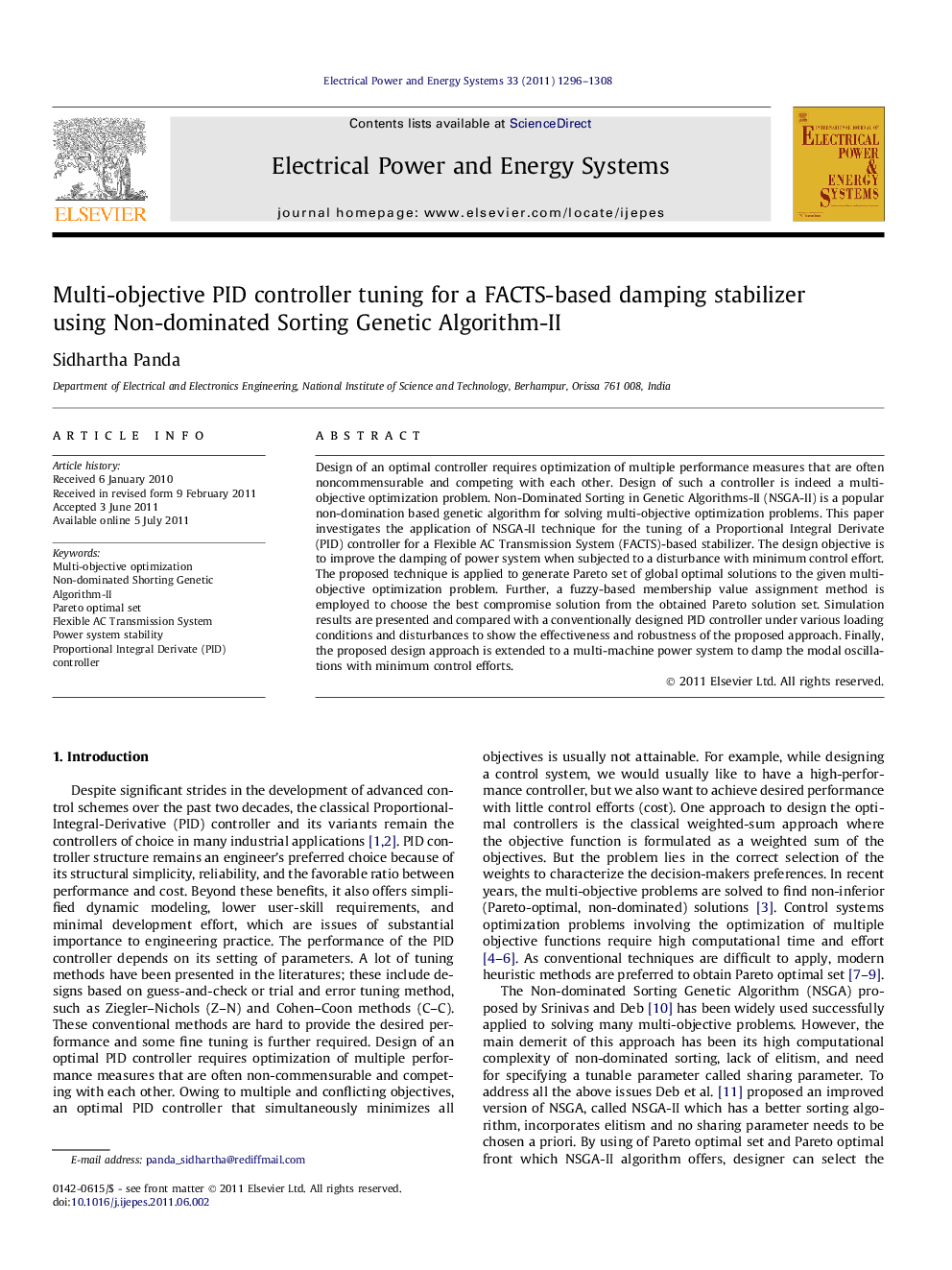| Article ID | Journal | Published Year | Pages | File Type |
|---|---|---|---|---|
| 399933 | International Journal of Electrical Power & Energy Systems | 2011 | 13 Pages |
Design of an optimal controller requires optimization of multiple performance measures that are often noncommensurable and competing with each other. Design of such a controller is indeed a multi-objective optimization problem. Non-Dominated Sorting in Genetic Algorithms-II (NSGA-II) is a popular non-domination based genetic algorithm for solving multi-objective optimization problems. This paper investigates the application of NSGA-II technique for the tuning of a Proportional Integral Derivate (PID) controller for a Flexible AC Transmission System (FACTS)-based stabilizer. The design objective is to improve the damping of power system when subjected to a disturbance with minimum control effort. The proposed technique is applied to generate Pareto set of global optimal solutions to the given multi-objective optimization problem. Further, a fuzzy-based membership value assignment method is employed to choose the best compromise solution from the obtained Pareto solution set. Simulation results are presented and compared with a conventionally designed PID controller under various loading conditions and disturbances to show the effectiveness and robustness of the proposed approach. Finally, the proposed design approach is extended to a multi-machine power system to damp the modal oscillations with minimum control efforts.
► An optimal controller should perform satisfactorily with minimum control efforts. ► Design of such a controller is indeed a multi-objective optimization problem. ► Multi-objective NSGA-II is employed here for FACTS-based PID controller design. ► The proposed technique is tested in both SMIB and multi-machine power system.
